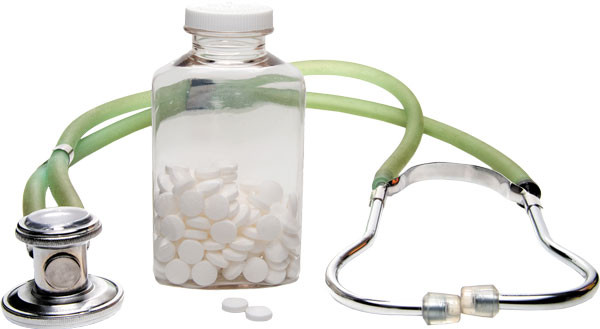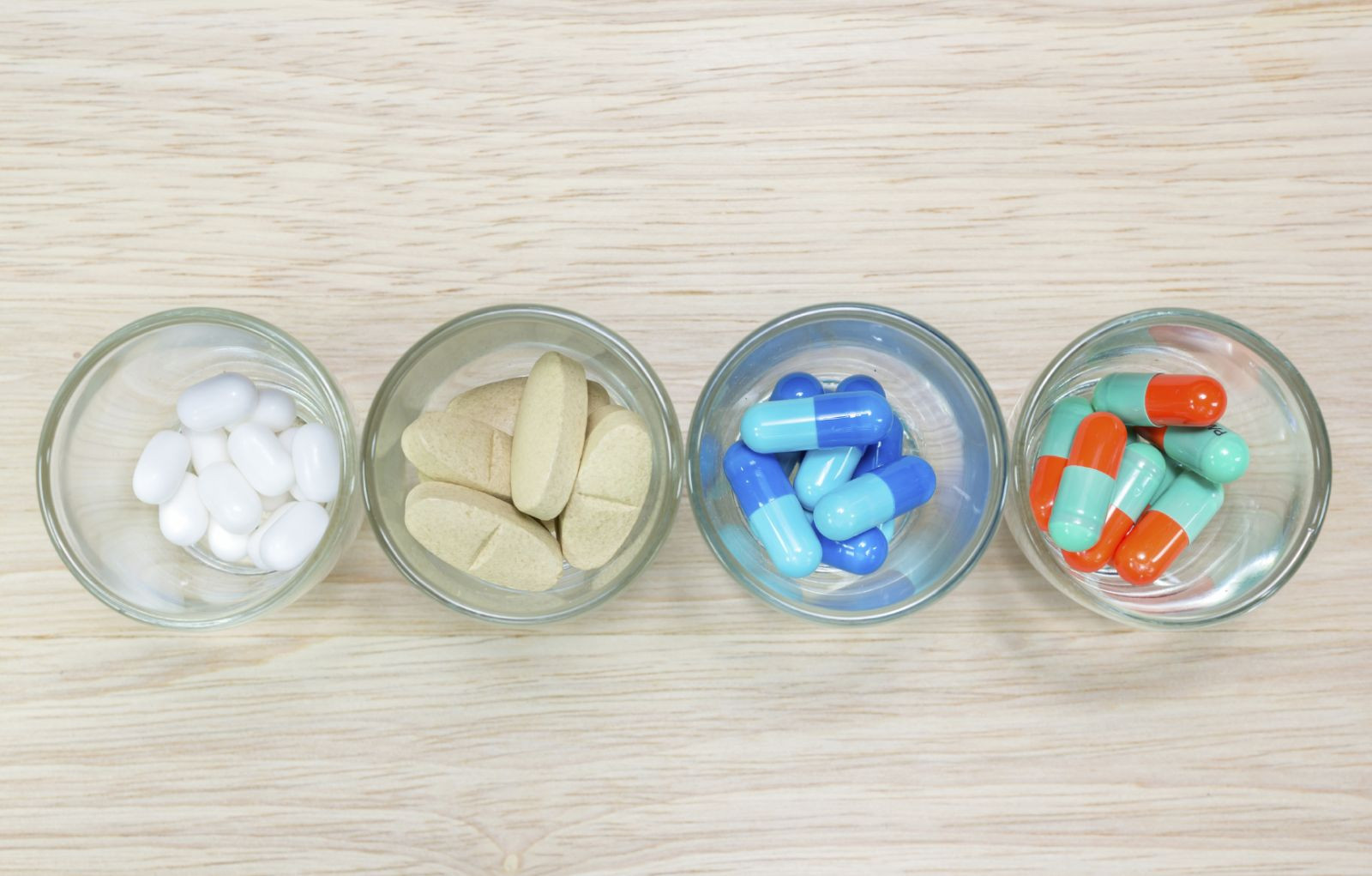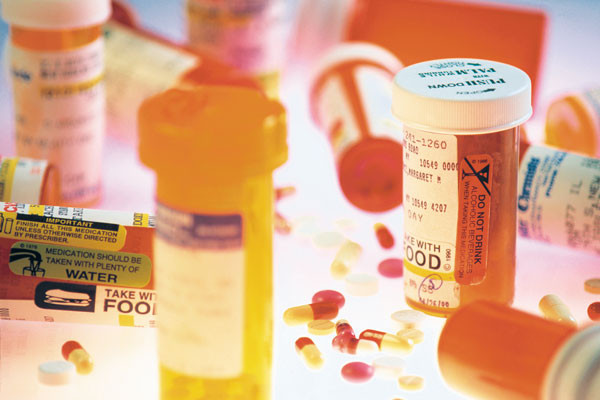
New thinking about plaque in arteries that feed the brain

Want to prevent shifting teeth? Maybe you need retainers

What you need to know about the new dietary guidelines

Food that’s healthier for people and planet can be cheaper, too

New evidence that polyphenol-rich foods help the heart

8 simple ways to reduce ultra-processed foods in your diet

How to curb your stress eating

How to spot Parkinson’s disease symptoms

Heart failure symptoms in women: How they’re different

GERD diet: Foods to avoid to reduce acid reflux
Medications Archive
Articles
Drug no better than aspirin for stroke prevention
A study found that the drug ticagrelor (Brilinta) was no better than aspirin at preventing stroke among people who had a mild stroke or a transient ischemic attack (TIA), which mimics stroke-like symptoms. However, ongoing research may show benefits in using the drug in combination with aspirin.
Why you should always have aspirin on hand
This old standby may not be your first choice for pain relief, but it still has an important role in disease prevention and first aid.
Image: Thinkstock
We have a lot to thank aspirin for. It's cheap and plentiful. It does a good job of relieving pain and bringing down fevers. It has also been shown to reduce the risk of heart attack, stroke, and colon cancer. It can even stop heart attacks and strokes in their tracks. In fact, if you're in your 50s or 60s, you may want to think about taking a low-dose aspirin every day.
After evaluating the results of scores of studies, in April 2016 the U.S. Preventive Services Task Force (USPSTF) recommended that women and men ages 50 through 69 who have a 10% risk of a heart attack or stroke in the next 10 years take 81 milligrams (mg) of aspirin daily. Under the previous recommendations—which, were different for men and women—daily low-dose aspirin was advised for women ages 60 through 79 who were at increased risk for cardiovascular events. The recommendation was revised to reflect a new method of calculating the risk of heart attack and stroke and of increased risk of bleeding in older people.
Trouble swallowing your medication? These tricks might help
Some simple techniques can make big pills go down more easily.
Image: Thinkstock
If you have trouble swallowing a pill, you're in the majority. In a Harris survey conducted a few years ago, 51% of women said they had experienced difficulty swallowing tablets or capsules. "We often see people who can swallow food and liquid just fine, but have difficulty with pills," says Denise Ambrosi, director of the Speech-Language Pathology Department at Harvard-affiliated Spaulding Rehabilitation Hospital. Ambrosi notes that some people have physical issues that affect their ability to swallow, while others have an aversion to taking pills.
How swallowing can go awry
Helping the medicine go down
If pills present your only swallowing issues, there are a few things you can do to make swallowing medicine a little easier:
Tuck your head. The following may help even a large pill go down: Put the pill on your tongue. Take a sip of water and hold it in your mouth. Lower your chin to your chest. Swallow.
Disguise the pill. Put it in a food that can be swallowed without chewing, such as applesauce, yogurt, or a fruit or vegetable puree.
Modify the pill. Check with your pharmacist to see if the pill can be ground or broken into smaller pieces that can be mixed into food or more easily swallowed. If a pill is scored, it can probably be divided. However, coated, time-release, and combination medications are meant to be taken whole. So are capsules.
Try a different form. Talk to your doctor to see if you can take the medication (or a related one) in another form, such as a syrup, cream, injection, or infusion. For example, for women who have difficulty swallowing bisphosphonates like alendronate (Fosamax) and ibandronate (Boniva), zoledronate (Reclast, Zometa), is available as intravenous infusion.
Hormones and your heart
Age-related drops in sex hormone levels sometimes cause undesirable symptoms. But is hormone therapy safe for the heart?
Image: monkeybusinessimages/Thinkstock
A decline in sex hormones is a natural part of growing older. Still, it's only natural to want to feel robust, mentally sharp, and healthy as we age. So it's no surprise that hormone therapy—which has been touted by drug companies as a way to restore youthful vigor, first for women and more recently for men—has generated so much interest.
But hormone therapy has a long, controversial history, particularly with regard to how it may affect the risk for common, chronic health problems. The following is a summary of what we know—and don't know—about the cardiovascular effects of hormone therapy for women and men.
Prescription drug and supplement use on the rise among seniors
New findings suggest that one in six older adults is at risk for drug interactions. Should you be concerned?
Image: iStock
Earlier this year, a study that examined the pill-taking habits of older Americans suggested that seniors are taking more prescription drugs and dietary supplements than in years past. Not surprisingly, most of these pills are used to treat or prevent cardiovascular disease, the nation's leading killer.
The report found that more than a third of adults ages 62 to 85 take five or more prescription medications, over-the-counter (OTC) drugs, or dietary supplements (see box for a description of the study). The study found that about one in six older adults is taking a combination that could cause a major interaction.
Risk of serious falls linked to changes in blood pressure drugs
When older people start taking a new blood pressure drug or change the dose of their current drug, they may be more prone to a serious fall during the following two weeks. But this increased fall risk doesn’t seem to persist over the long term.
Strategies for taking medications
Doctors may prescribe medications in hopes of helping a patient, but statistics show that at least half of all patients do not follow through with the treatment. Dr. Robert Schmerling explains why some people are choosing to skip taking medications and the possible results of not taking them.
Botox injections get another nod for treating migraine headaches
In its 2016 guidelines, the American Academy of Neurology recommended the use of onabotulinumtoxin A (Botox) injections as a way to help reduce the frequency of chronic migraines.
Over-the-counter drugs may be linked to memory decline
A class of drugs commonly used in over-the-counter and prescription drugs to treat such problems as insomnia, diarrhea, high blood pressure, depression, and urinary incontinence may be linked to cognitive impairment. Scientists believe the drugs block the neurotransmitter acetylcholine that helps process information, which scientists believe is responsible for the effect.
What you need to know if you’re taking multiple medications
To stay on your regimen, you'll have to be organized and learn about each of your drugs.
Many older adults take five or more prescription medications, increasing the risk of harmful drug interactions.
Image: Comsstock/Thinkstock
Taking several types of medications can be challenging. But this is something you have to get right. If you don't, you may have unwanted side effects, or you may not properly treat your chronic condition. "I see people who average 15 medications, and it's very difficult for them to juggle that many pills," says Joanne Doyle Petrongolo, a pharmacist at Harvard-affiliated Massachusetts General Hospital.

New thinking about plaque in arteries that feed the brain

Want to prevent shifting teeth? Maybe you need retainers

What you need to know about the new dietary guidelines

Food that’s healthier for people and planet can be cheaper, too

New evidence that polyphenol-rich foods help the heart

8 simple ways to reduce ultra-processed foods in your diet

How to curb your stress eating

How to spot Parkinson’s disease symptoms

Heart failure symptoms in women: How they’re different

GERD diet: Foods to avoid to reduce acid reflux
Free Healthbeat Signup
Get the latest in health news delivered to your inbox!
Sign Up








